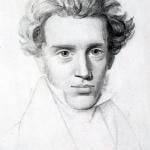Southern Baptists are currently embroiled in a controversy over “Calvinist Baptists.” David Koyzis and Collin Garbarino over at the First Things blog are asking if there can be Calvinist Baptists, why can’t there be “Lutheran Baptists”?
After all, Lutherans were flexible about allowing different kinds of church polities. Calvin is associated with Presbyterianism. One might think that Luther’s theology would be more adaptable. When it comes to soteriology, says Mr. Garbarino, Calvinism and Lutheranism are pretty much the same anyway. (He adds in a parentheses: “I know some people will disagree with that last statement, but those people are wrong.”)
Read David T. Koyzis, Calvinist Baptists, But No ‘Lutheran’ Baptists? and Collin Garbarino, Why We Don’t Have Lutheran Baptists











